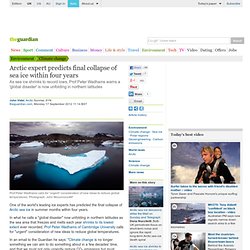

Marine Biology. Mounting Evidence Suggests Sharks Are In Serious Trouble. Can you imagine oceans without sharks?

We may soon have to, as new research suggests may already be 90% of the way there. Studying shark populations can be tricky. As David Shiffman explains well, while there are a number of methods that can be used to study shark populations, quantifying just how far their numbers have fallen can be difficult. However, recent research out of the University of Hawaii suggests that the presence of humans has a severe and strong negative impact on sharks, driving down numbers by over 90%. Sharks play a vital role in coral reef ecosystems. In an effort to answer the first, the research team crunched data from 1607 surveys from the NOAA Coastal Reef Ecosystem Division (CRED) to calculate the effect of human habitation on shark populations. “Around each of the heavily populated areas we surveyed — in the main Hawaiian Islands, the Mariana Archipelago and American Samoa — reef shark numbers were greatly depressed,” said Marc Nadon, lead author of the study.
Acid Oceans Helped Fuel Mass Extinction. 12 Worst Invasive Fish on Earth. Recovered Arctic expert predicts final collapse of sea ice withi. Prof Peter Wadhams calls for “urgent” consideration of new ideas to reduce global temperatures.

Photograph: John Mcconnico/AP One of the world's leading ice experts has predicted the final collapse of Arctic sea ice in summer months within four years. In what he calls a "global disaster" now unfolding in northern latitudes as the sea area that freezes and melts each year shrinks to its lowest extent ever recorded, Prof Peter Wadhams of Cambridge University calls for "urgent" consideration of new ideas to reduce global temperatures. In an email to the Guardian he says: "Climate change is no longer something we can aim to do something about in a few decades' time, and that we must not only urgently reduce CO2 emissions but must urgently examine other ways of slowing global warming, such as the various geoengineering ideas that have been put forward.
" These include reflecting the sun's rays back into space, making clouds whiter and seeding the ocean with minerals to absorb more CO2. Coral Research. Why Coral Reefs?

Our survival depends directly upon the health of our global ecosystems. Coral covers only about 0.2 percent of the Earth’s surface, yet coral reefs support 25 percent of all marine life with more density of life in reefs than any in other ocean habitat. Our life as humans depends on coral reefs. More than a billion people depend directly on reefs for their livelihood. Coral reefs contribute over 30 billion dollars to the world economy each year. In Kaneohe Bay, the barrier reef protects Coconut Island, the home of the Hawaii Institute of Marine Biology (where our lab is located) as well as Oahu, the most populated island in the Hawaiian Island chain.
Coral reefs play a critical role in the carbon cycle of our planet by taking calcium ions and dissolved carbon dioxide from the water and turning it into the calcium carbonate forming their hard skeletons. Coral reefs are in trouble and need our help. Locally, coral is being threatened in many ways. Coral Research. Cyclops Shark. Claim: Photographs show a one-eyed shark fetus.

Example:[Collected via e-mail, July 2011] Came across this "interesting" species of fish on a popular photo entertainment website. I later found a website claiming it's an unborn shark fetus. Still seems kind of fishy . . . Origins: The term cyclopia describes a congenital defect in animals characterized by the fusion of the orbits into a single cavity containing one eye. According to National Geographic: Once biologist Felipe Galván-Magaña, of the Interdisciplinary Center of Marine Sciences in Mexico, and colleague Marcela Bejarano-Álvarez heard about the discovery, the team got León's permission to borrow the shark for research. Cyclops sharks have been documented by scientists a few times before, also as embryos, said Jim Gelsleichter, a shark biologist at the University of North Florida in Jacksonville. Overall, finding such an unusual animal reinforces that scientists still have a lot to learn, Gelsleichter added.